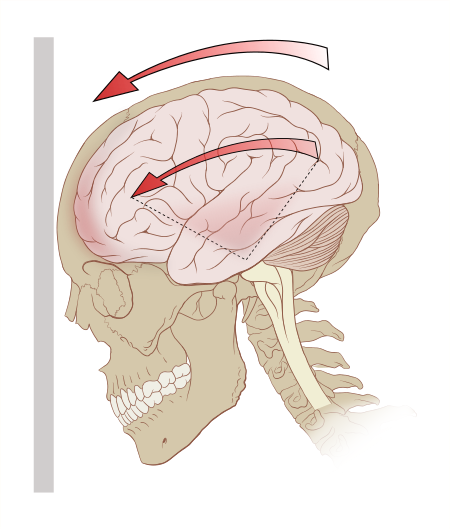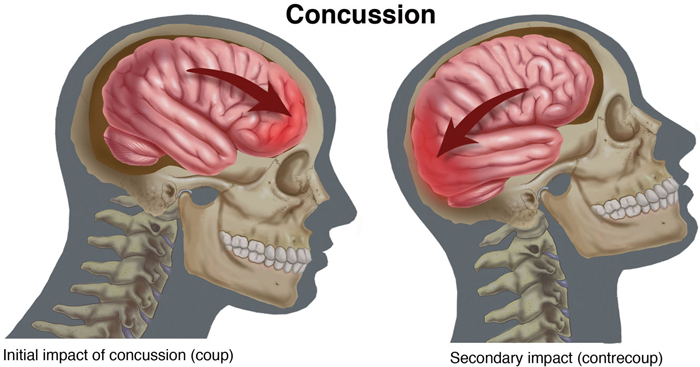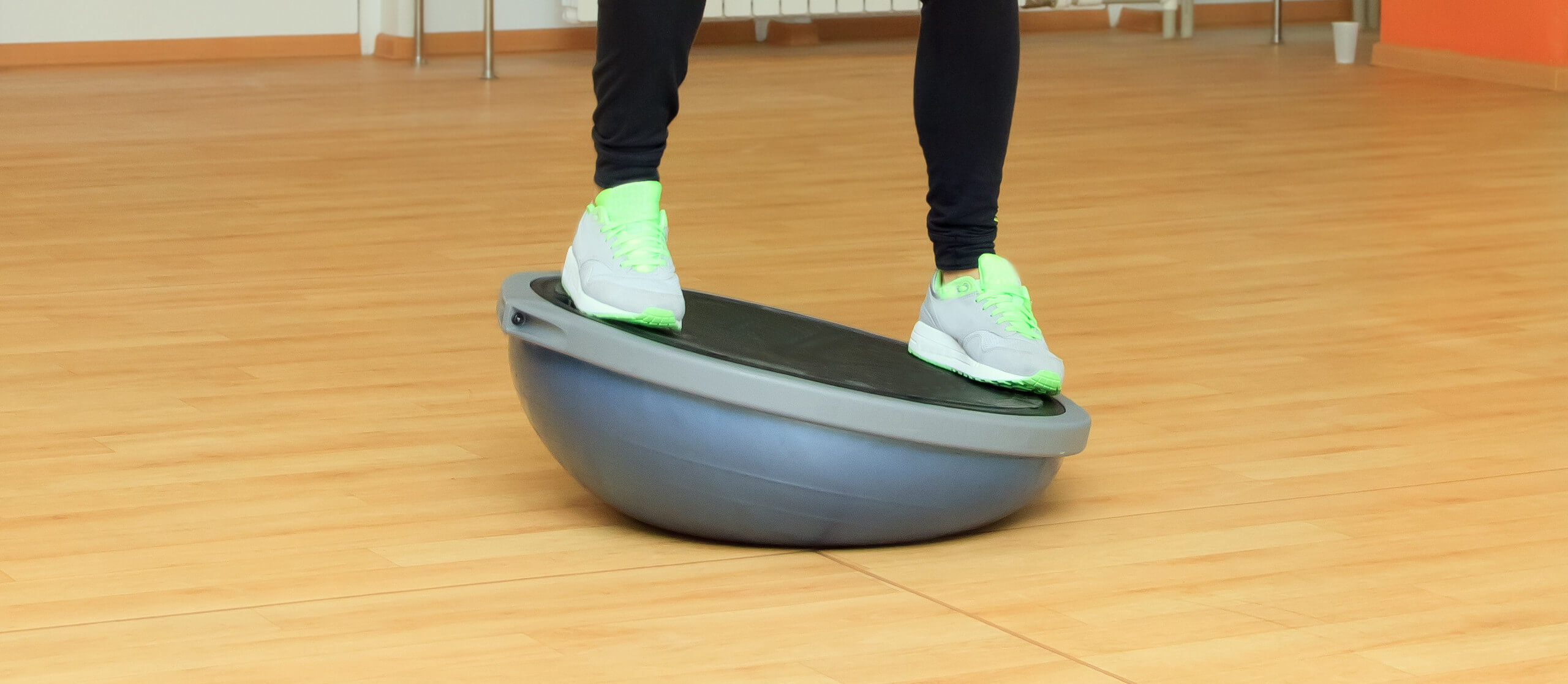nalco group
bone, muscle & joint pain physio
BOOK NOW / WHATSAPP ABOUT YOUR PAIN OR INJURY
- NOVENA 10 Sinaran Drive, Novena Medical Center #10-09, Singapore 307506
- TAMPINES 9 Tampines Grande #01-20 Singapore 528735
- SERANGOON 265 Serangoon Central Drive #04-269 Singapore 550265
Home > Blog > Physiotherapy > Conditions > Concussion Physiotherapy
Concussion Physiotherapy

Concussion is a traumatic brain injury that can cause lasting (permanent) effects on brain tissue as well as change the chemical balance of the brain.
Concussion may cause
- physical, cognitive, and behavioral symptoms and problems
- both short-term and long-term
Every concussion is considered a serious injury by health care providers. If you have experienced a head injury, seek medical help immediately.
The Centers for Disease Control (CDC) estimates that 1.6 million to 3.8 million people experience concussions during sports and recreational activities annually in the United States.
These numbers may be underestimated, as many cases are likely never reported (unreported and underreporting or even direct misdiagnosis/misassumptions).
Our senior physiotherapists can assess symptoms to determine if a concussion is present, and treat the injury by guiding the patient through a safe and individualized recovery program.
first of all, What Is Concussion?
Concussion is a brain injury that occurs when the brain is violently shaken.
The injury can happen during rapid movement changes (such as whiplash) or when the head is directly hit. What happens is that this shaking or hitting of the patient's head causes unpredictable injury to any area of the brain, resulting in immediate or delayed changes in the brain's chemistry and function.
Less than 10% of concussions involve a loss of consciousness.
Depending on which area of the brain suffers injury, many different temporary or permanent problems with brain function can occur.

Concussions can occur at any age, from a variety of causes, including:
- Motor vehicle collisions (ie, head impact, whiplash)
- Work accidents (ie, falls, head trauma)
- Playground accidents (ie, falling from a slide or swing)
- Sports injury to the head or neck
- Falls (which are the leading cause of concussions)
- Violent events, such as:
- Physical abuse during which the head is shaken
- Being too close to a blast or explosion
- Direct blow to the head, face, or neck
- Assaults, domestic violence
Recovery from a concussion can take several weeks to several months and sometimes years, depending on multiple factors, including
- severity of
the injury and
- the age of the person affected
Oftentimes, concussions aren't standalone (ie not the only condition) that is present.
Concussion may occur along with other injuries, such as those to the neck and surrounding tissues, which should be managed by licensed senior physiotherapists. More serious brain injuries, such as bruising, bleeding, or tearing, may also occur and require the immediate care of a medical doctor, such as a neurosurgeon.
CAUTION: Concussions can potentially lead to long term brain damage. Seek medical help from a licensed health care provider following any suspected head injury.
what does a concussion feel like?
A concussion is a brain injury, and unfortunately patients living with a brain injury often don’t have the language to express how they feel after injury.
That's why, it is important to work with a senior physiotherapist who gets to know you, your family, teammates, and/or coworkers who may notice any changes in you.
Signs and Symptoms
There are many symptoms related to concussion, and they can affect your physical, emotional, and mental well-being. Some symptoms may be obvious and occur immediately, some a few hours after the injury, and some show up months or years after a concussion.
It's those that show up later (be it days, weeks, months or years) that are the scary ones, because there is no warning. And that's why it is important to seek medical treatment immediately following any head injury.
The risk of death or permanent brain damage from a concussion can be minimized by immediate and appropriate treatment from health care providers, like senior physiotherapist.
Only health care providers have the knowledge and training to identify concussion in the maze of symptoms that can occur following a head injury.
Immediate and short-term symptoms
Physical symptoms of a concussion can include:
- Headache
- Dizziness
- Difficulty with balance and coordination
- Nausea/vomiting
- Fatigue
- Difficulty sleeping
- Increased sleepiness
- Double or blurred vision
- Sensitivity to light and sound
- Slurred speech
- Glassy-eyed stare
- Seizures
Cognitive (thinking) symptoms can include:
- Difficulty with short-term or long-term memory
- Confusion
- Slowed "processing" (eg, a decreased ability to think through problems)
- "Fogginess" (mental fog)
- Difficulty concentrating
- Worsening grades in school
Emotional symptoms can include:
- Irritability
- Restlessness
- Anxiety
- Depression
- Mood swings
- Aggression
- Decreased tolerance of stress
- Change in personality or behavior
Longer-term symptoms
- Loss of libido
- Loss of menses/menstruation
- Growth problems (children)
- Fatigue
- Weight gain
- Low blood pressure
- Muscle weakness
- Chronic headaches or dizziness
- Muscle spasticity (muscles that tighten and remain in a shortened/tightened state)
- Early dementia / chronic traumatic encephalopathy (brain disorder)
Some concussion symptoms do not go away in the expected time frame. These symptoms may need further testing and treatment by a team of health care providers, including a physical therapist.
Postconcussion syndrome is the term applied to symptoms such as headaches or dizziness that persist for weeks or months after the initial injury.
Second-impact syndrome is a serious, although preventable, complication that can occur after a concussion. If a person who has suffered a recent concussion experiences another concussion, permanent brain damage or death can occur. Permanent brain damage can include learning disabilities, personality changes, walking disability, or other brain or nerve disabilities. Research suggests that a person who suffers a second concussion before the initial concussion has healed, has a 100% chance of permanent brain damage, and a 50% chance of dying.
An example of second-impact syndrome would be a football player who suffers a concussion in a game, keeps playing, and is hit again; or a person who suffers a concussion from whiplash in a car accident, and then falls at home and endures another concussion very soon after the initial injury.
Extreme care should be taken after a concussion to prevent a second injury.
Athletes who suffer a concussion during practice or competition must be removed immediately from play, in order to prevent subsequent concussions and second-impact syndrome.
Our senior physiotherapists will work to develop safe guidelines for safe
- return to play
- return to work and
- return to life’s daily requirements
A longer recovery time may be required for those with a history of prior concussions, eye tracking/movement issues from childhood, migraines, attention deficit hyperactivity disorder, or a learning disability.
It's important to disclose your entire medical health history to our senior physiotherapists, as every health history and details matter.
How Is concussions Diagnosed?
Concussion is most often diagnosed through careful testing by your health care provider, such as a senior physiotherapist.
Unfortunately, there is no single test or tool exists to diagnose and confirm a concussion.
The diagnosis usually does not rely on hi-tech testing, such as an MRI or CT scan, because brain scans often do not show any brain abnormality, even when the person has symptoms of a concussion.
Our senior physiotherapists will ask you many questions to understand all of the symptoms that you are experiencing. They also will perform numerous tests to identify problems caused by a concussion, including
- muscle strength
- coordination
- balance
- sight
- smell
- hearing and
- memory tests
During treatment, we will repeat the same questions and tests frequently to gauge your progress and help judge when you can return to work, school, sport, or recreational activities.
If you are an athlete who underwent preseason memory (neuropsychological) testing, your physiotherapist may collaborate with the doctor who performed that testing to help determine if you have a concussion.
We may also examine your neck for problems following a concussion. Neck injuries can occur at the same time as concussions, and can cause or increase headaches and dizziness.
how our senior physiotherapists can help

Our senior physiotherapists can evaluate and treat many problems related to concussion.
Because no concussions are the same, we will examine your
- neurological
- orthopedic and
- cardiovascular systems
in order to best prescribe a routine to address your particular symptoms and your needs in all of your daily environments.
Treatment may include:
Rest and recovery.
We will help you and your family understand why you should limit any kind of activity (daily tasks, work, school, sports, recreation, the use of electronics) after a concussion, until it is safe to return to these activities.
A period of rest helps the brain heal and helps symptoms clear up as quickly as possible. We will prescribe the rest and recovery program most appropriate for your condition.
Restoring strength and endurance.
The physical and mental rest required after a concussion can result in muscle weakness, and a decrease in physical endurance. We will help you regain your strength and endurance when the right time comes, without making your concussion symptoms worse.
It is common for elite-level athletes and fit “weekend warriors” to experience exercise intolerance with concussion and brain injury. We will work with you to identify and treat your particular concussion symptoms.
We will design a therapeutic exercise program just for you, and closely monitor your symptoms as you participate in the program.
Stopping dizziness and improving balance.
If you have dizziness or difficulty with balance after a concussion, a type of physiotherapy treatment called vestibular physical therapy may help. The vestibular system, which includes the inner ear and its connections with the brain, helps you keep your balance and prevent dizziness.
A qualified vestibular physicotherapist may be able to help reduce or stop your dizziness or balance problems after a concussion by applying special treatments or teaching you specific exercises, some of which you may be able to do at home.
Reducing headaches.
We will assess the different possible causes of your headaches, and use specific treatments and exercises to reduce and eliminate them.
Treatment may include
- stretches
- strength and motion exercises
- eye exercises
- hands-on techniques (manual therapy, mobilization and manipulation) like specialized massage and
- the use of technologies such as electrical stimulation
Returning to normal activity or sport.
As symptoms ease and you are able to regain your normal strength and endurance without symptoms returning, your physical therapist will help you gradually add normal activities back into your daily routine.
We will help you avoid overloading the brain and nervous system as you increase your activity level.
Overloading the brain during activity after a concussion interferes with the healing of the brain tissue, and can make your symptoms return. We will help you return to your normal life and sport activities in the quickest and safest way possible, while allowing your brain to properly heal.
